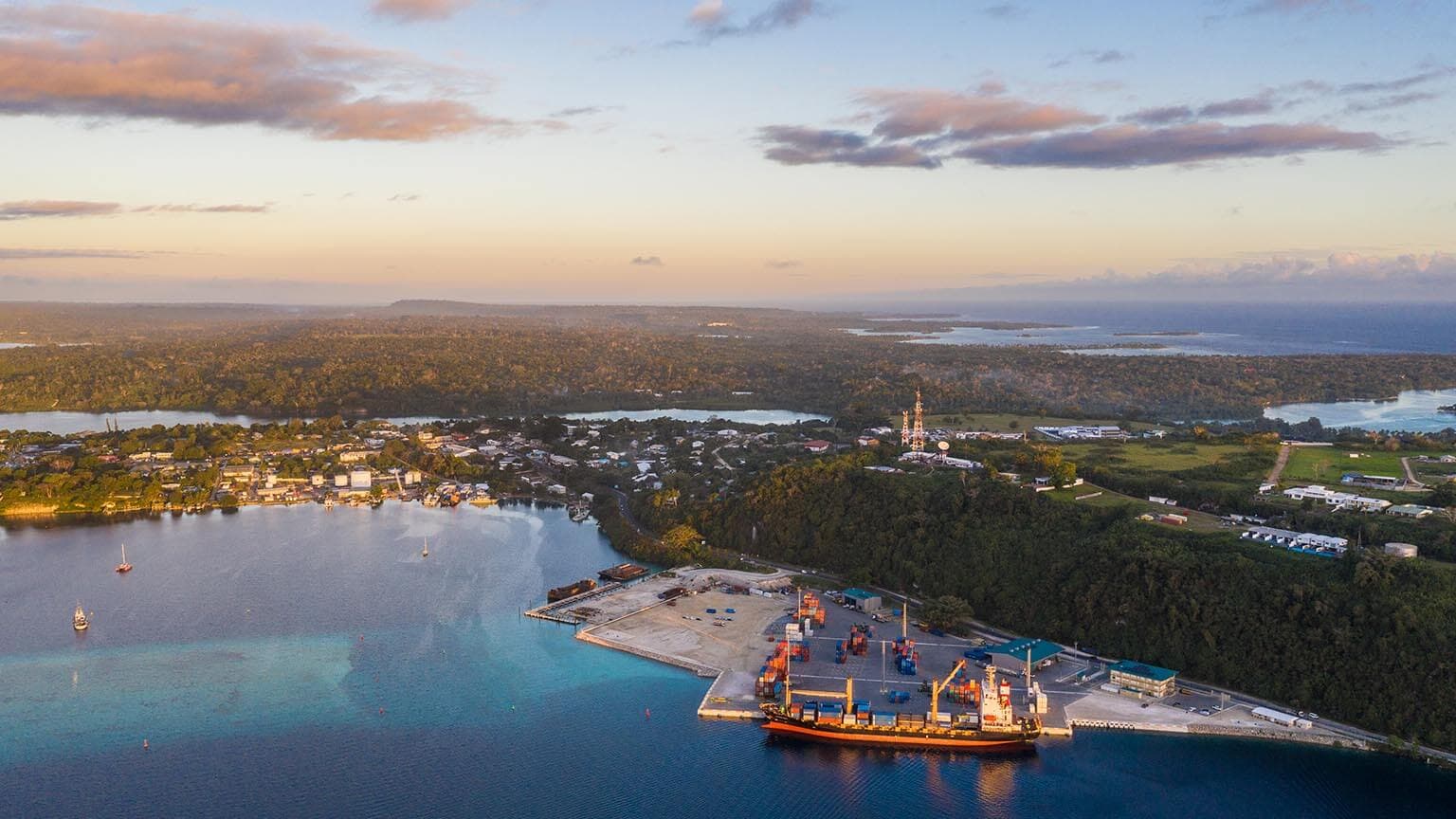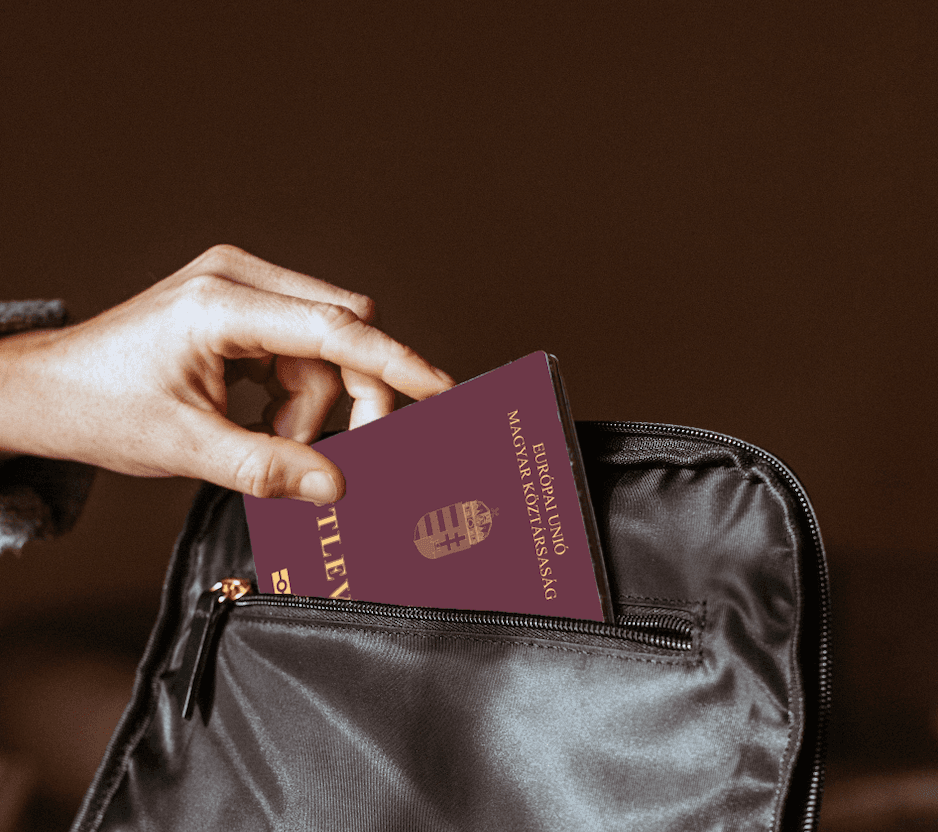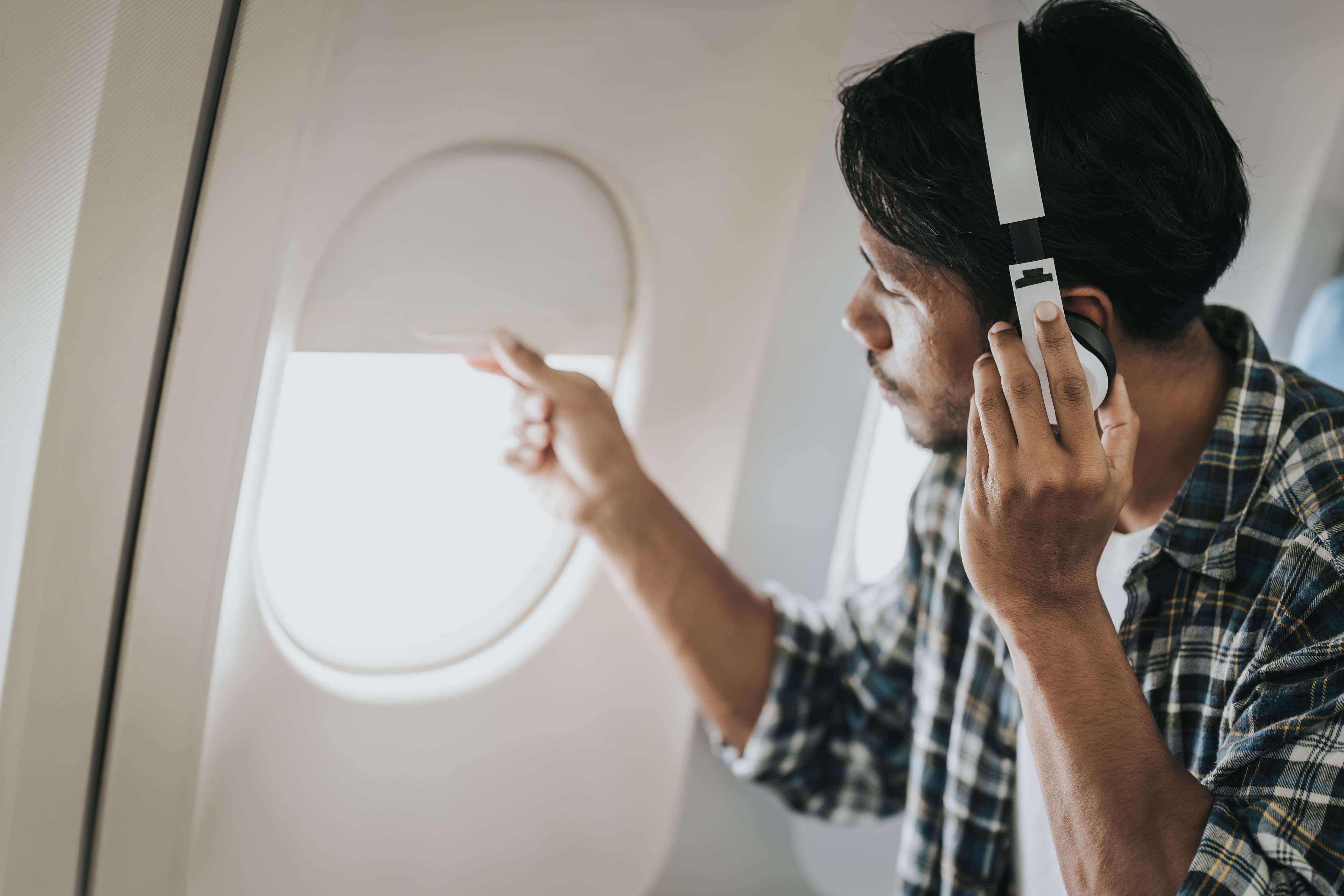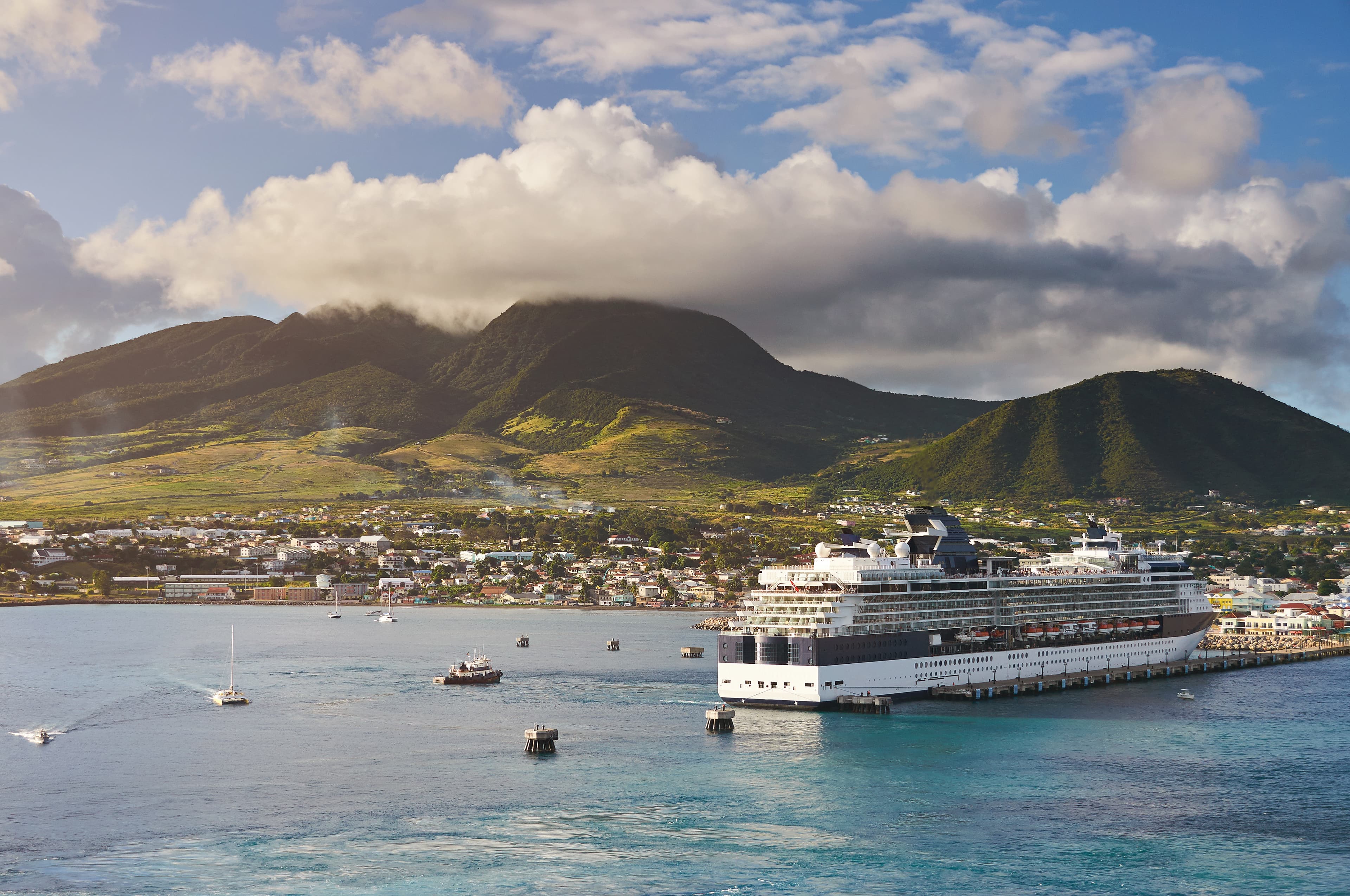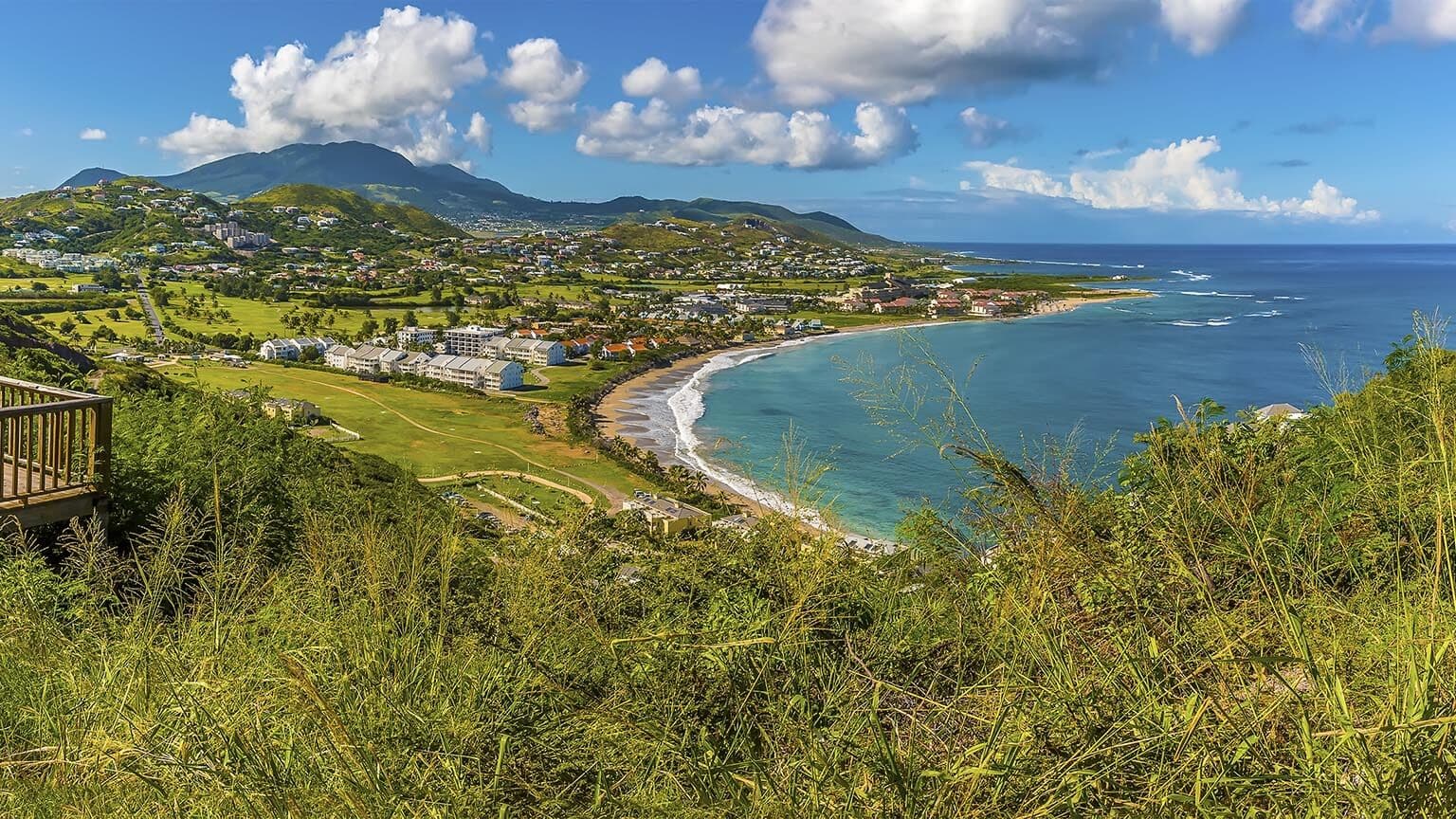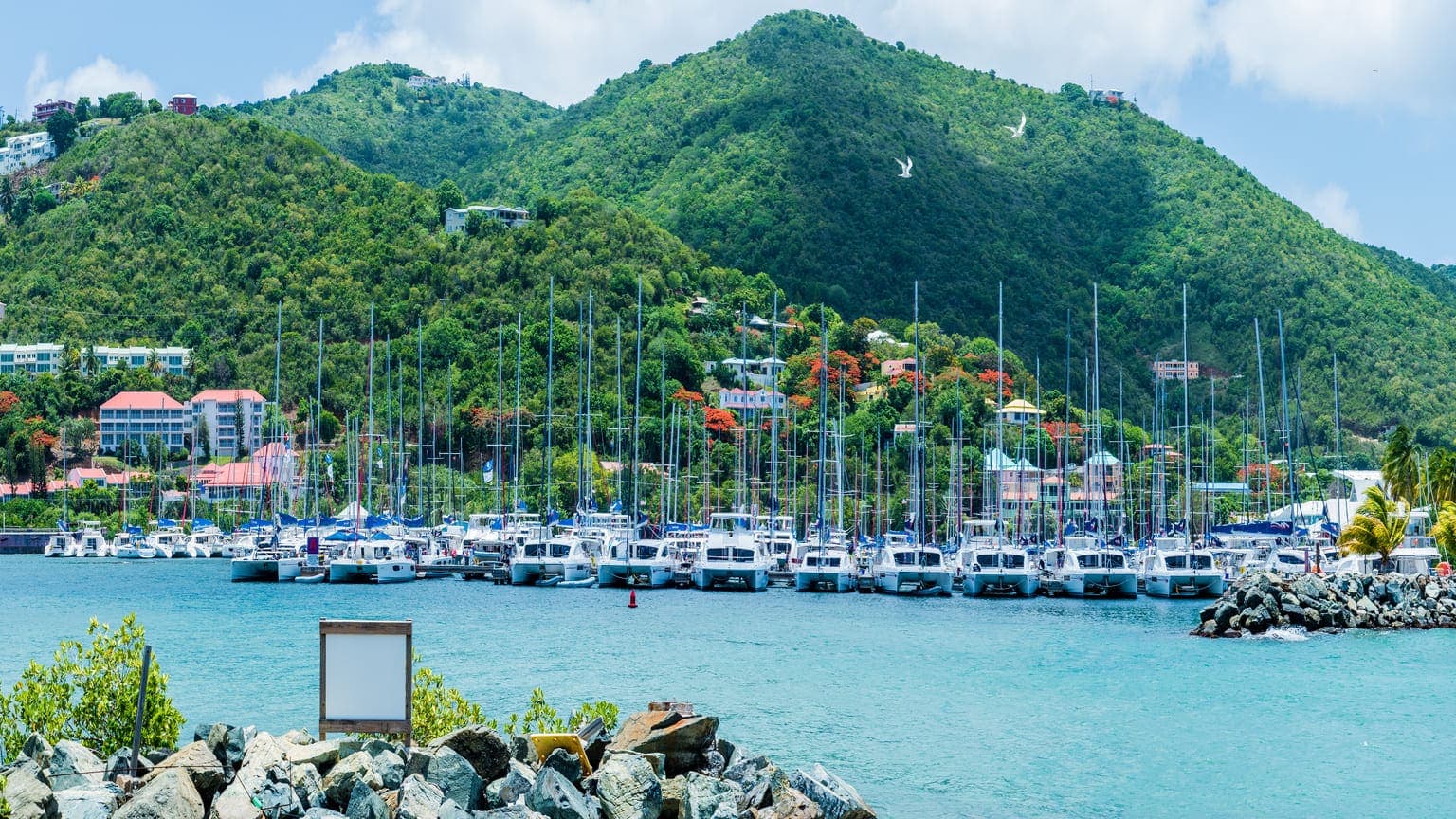Summary
Five Caribbean countries offer citizenship by investment programs: Antigua and Barbuda, Dominica, Grenada, St Lucia, and St Kitts and Nevis. To apply for citizenship, a foreigner makes a charitable donation, buys property, or invests in business in the chosen country.
The minimum investment amount for one applicant starts at $200,000, depending on the program. When applying with the family, the threshold increases.
Find answers to questions that may arise when choosing a Caribbean country for citizenship in the interview with Zlata Erlach, an investment migration expert and the head of Austrian Office at Immigrant Invest.
What benefits does a Caribbean passport grant?
Foreign investors choose Caribbean passports for global opportunities, simple procedures, and quick processing times.
Here are some of the key advantages investors can enjoy with a Caribbean passport.
1. Increased global mobility. One of the main benefits of Caribbean citizenship is travelling around the world visa-free. With a second passport obtained in a Caribbean country, investors can travel without a visa to the Schengen Area, the United Kingdom, Singapore, and more than 100 other countries worldwide.
Additionally, Grenadians are entitled to an E‑2 business visa to the USA, while citizens of Antigua and Barbuda, Dominica, St Lucia, and St Kitts and Nevis can obtain a 10-year US B‑1/B‑2 Visitor Visa.
Such freedom of movement provides flexibility for those interested in travelling the world, as well as business people who want to enter global markets.
2. Safe haven abroad. After obtaining a Caribbean passport, an investor and their family can quickly travel to another country in the event of unforeseen circumstances in the country of their origin. Citizens are allowed to enter the country even if the borders are closed for foreigners.
3. Remote obtaining of citizenship. All Caribbean countries with citizenship-by-investment programs, except St Kitts and Nevis, offer a fully remote process that does not require investors to visit the country.
Application and documents are submitted via a licensed program agent, interviews are conducted online, and citizenship documents are sent to the investor’s specified address.
Applicants for a St Kitts and Nevis passport also submit documents and undergo an interview remotely, but they need to personally visit the country to collect their naturalisation certificates.
4. Fast processing. Caribbean citizenship by investment programs feature some of the shortest processing periods. Investors can obtain passports to Antigua and Barbuda, Dominica, St Kitts and Nevis, and St Lucia in 6 months. To acquire a passport of Grenada, one will need 8 or more months.
5. No residency requirement. To maintain their citizenship, investors do not need to permanently move to the chosen country.
Antigua and Barbuda is the only one requiring investors to spend time in the country. To keep their passports, investors must come to Antigua and Barbuda for at least 5 days within the first 5 years after obtaining citizenship.
6. Favourable tax conditions. The five Caribbean countries allow investors to optimise their tax burden as they do not charge taxes on inheritance, gifts, and capital gains. St Lucia and Grenada do not levy taxes on global income, dividends, interests, or royalties.
7. High-quality education for children. Citizenship by investment also creates opportunities for the investor’s children. Since the Caribbean countries are part of the British Commonwealth of Nations, the investor's children can get a student visa and study at universities in the United Kingdom on preferential terms.

Trusted by 5000+ investors
Compare the Caribbean and Vanuatu citizenship by investment programs
Which country is the best to get a Caribbean passport in?
The five Caribbean countries offering citizenship by investment have similar requirements. However, investors should note the subtle differences in investment options and opportunities after obtaining citizenship.
While the benefits provided appear comparable, each country has unique aspects that can significantly impact an investor’s decision, depending on their specific goals and needs.
If the investment budget is limited, consider citizenship by investment in Dominica and Antigua and Barbuda.
In Dominica, the minimum investment for one applicant is $200,000, both for a fund contribution and real estate purchase.
In Antigua and Barbuda, the minimum contribution to the state fund is $230,000. Large families can benefit from the university fund donation option, obtaining passports for $260,000 for up to 6 applicants.
If an applicant is interested in returning their initial investment, it would help to consider buying property.
St Kitts and Nevis and Antigua and Barbuda typically allow the purchase of villas and houses, not just shares in hotels, providing more flexibility in the type of property investment.
However, it’s important to consider that hurricanes frequently affect Antigua and Barbuda, Dominica, and St Lucia, potentially damaging buildings and impacting the long-term value of investments. In contrast, properties in Grenada or St Kitts and Nevis might offer a safer option due to their lower susceptibility to hurricanes.
The minimum investment in real estate ranges from $270,000 in Grenada to $400,000 in St Kitts and Nevis.
All the countries allow selling property after several years to return the investment. In St Kitts and Nevis, the minimum holding period is 7 years, while in the rest of the countries, it is 5 years.
An alternative option is to purchase St Lucia non-interest-bearing government bonds for $300,000. Bonds can be fully redeemed in 5 years.
If the applicant needs a business visa to the United States, it is advisable to consider Grenadian citizenship. A passport of Grenada, granted for an investment of at least $235,000, allows its holders to apply for a US E-2 entrepreneur visa if they establish a company in the USA.
If the investor applies with the extended family, the best choice would be Grenada or Antigua and Barbuda. Both countries allow the main applicant to include spouses, children under 30, parents, grandparents, and siblings.
Additionally, in Antigua and Barbuda, investors do not need to prove financial dependency for children included in the application. In Grenada, siblings are not required to be financially dependent on the main applicant.
Traveling with a Caribbean passport
Holding a Caribbean passport offers significant travel benefits, allowing visa-free access to over 140 countries, including the entire Schengen Area, the UK, Singapore, and Hong Kong. For citizens of countries like Grenada, this extends to visa-free entry into China as well.
Also, Caribbean passport holders are eligible to apply for a 10-year tourist visa to the United States, which can be processed at any US consulate within approximately two weeks.
When traveling with two passports, it's essential to use each one correctly during different travel stages:
-
When departing, present your passport at the airline check-in counter and again at the boarding gate to ensure you meet the entry requirements of your destination country.
-
At departure passport control, use the passport with which you entered the country.
-
For entry into your destination or return home, present the appropriate passport at arrival passport control, aligning with the country’s citizenship or visa policies.
Let’s imagine you hold dual citizenship with Turkey and Grenada and you’re planning a trip from Turkey to Italy. At the check-in desk in Turkey, present your Grenada passport to comply with Italy’s entry requirements. However, at the Turkish exit controls, you need to present your Turkish passport to comply with Turkish exit requirements.
Upon arrival in Italy, present your Grenadian passport, as it serves as a visa replacement for entry into EU countries.

Is it safe to purchase St Lucian government bonds?
Investing in St Lucia’s National Action Bonds for citizenship is considered low risk. These bonds, guaranteed by the government, do not bear interest and must be held in the applicant’s name for 5 years.
The government reserves the exclusive right to repurchase them, which mitigates the risk of non-repayment unless the government faces complete insolvency. In such an unlikely scenario, the bond’s term is automatically extended.
The bond investment requires an initial payment of $300,000 plus fees, with several specific procedural steps to finalize the citizenship and bond issuance.
Can family members get citizenship with the main applicant?
All Caribbean citizenship by investment programs allow investors to include family in the application. The list of eligible members differs depending on the country.
Family members are usually included in the initial application. Some countries allow adding relatives later, depending on their rules. In Grenada, children receive citizenship only if they apply with the investor. The exception is children born after the main applicant obtains citizenship.
Qualifying family members for Caribbean citizenship
How much does it cost to add family members
The cost of adding family members varies by country and depends on the chosen option and the number of applicants: the more family members included, the more additional fees must be paid.
As a general rule, the threshold for a fund contribution increases for families of 5 or more members. The minimum investment in real estate does not depend on the family composition.
In the Dominica citizenship by investment program, the investment amount required for a family of five or more increases. For a family of five, the non-refundable fund contribution rises to $250,000 from the standard $200,000 for a smaller family.
Similarly, for each additional family member beyond the fifth, the investment increases by $25,000 for those under 18 and $40,000 for those over 18. This increment applies whether investing through a fund contribution or real estate purchase, although the base real estate investment remains at $200,000 regardless of family size.
Cost of Caribbean citizenship for a family of four
How to prove that a child aged over 18 is entirely financially dependent on the investor?
Documentary proofs. The principal applicant has to prove that their adult child is financially dependent on them: this can be done by showing checks used for payments or bank statements.
Antigua and Barbuda is the only Caribbean country which does not require children aged 18 to 30 to be financially dependent on the investor.
Other conditions for adult children. In Dominica and St Kitts and Nevis, the adult child of the investor has to be a university student to be granted citizenship.
Thus, conditions for the participation of an adult child of an investor in a Caribbean citizenship by investment program are as follows:
-
Grenada — financial dependency required;
-
Dominica — financial dependency and university enrolment required;
-
St Lucia — financial dependency required;
-
Antigua and Barbuda — no financial dependency required;
-
St Kitts and Nevis — financial dependency and university enrolment required, child must be aged up to 25.
What is easier and more beneficial: a non-refundable contribution or buying real estate?
The easiest way to apply for second citizenship by investment is by making a non-refundable contribution. However, this option may not be the most advantageous, as the investment cannot be recovered. Additionally, when including family members, the required investment amount may increase.
A more beneficial option is to purchase real estate. Although this is more expensive than a non-refundable contribution, the property can be used for living or rented out to generate income. Later, it can be sold at a profit.
Real estate investments in different Caribbean countries
Which properties qualify for citizenship by investment?
In all the countries, investors can buy real estate only in government-approved projects. Typically, these are shares in hotels or residential complexes.
St Kitts and Nevis also allows purchasing a share in a condominium unit or a single-family private dwelling, both designated as an Approved Private Home.
When selling the property, investors must pay a stamp duty or property transfer tax of up to 15%, depending on the country. Capital gains tax on the property price increase is not levied in any of the countries.
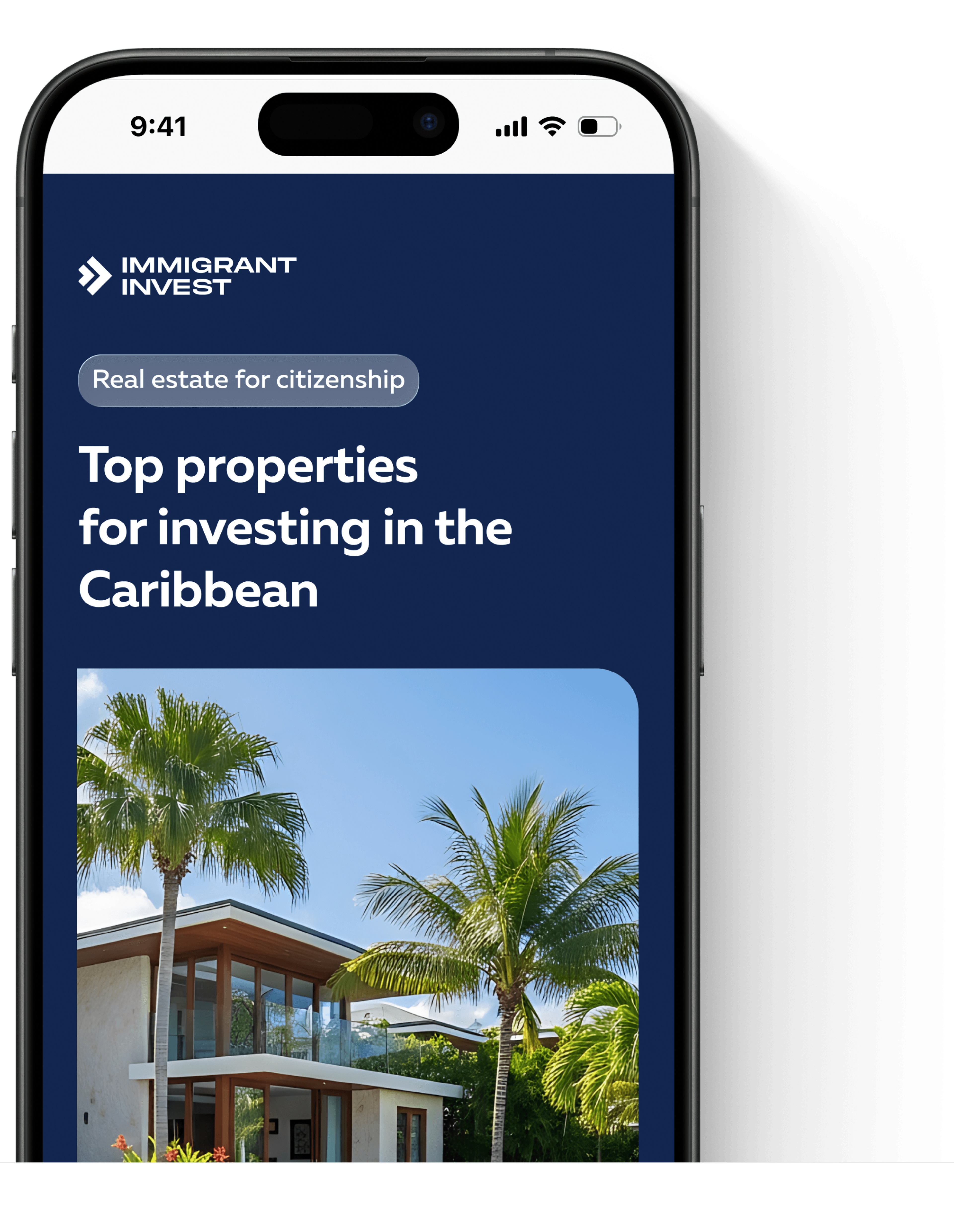
Practical Guide
Your key to Caribbean citizenship: curated real estate for $200k+
What is the fastest way to get citizenship in the Caribbean?
The minimum period of obtaining a Caribbean passport is 6 months. This applies to Antigua and Barbuda, Dominica, St Kitts and Nevis, and St Lucia. In Grenada, the entire process takes 8 or more months.
The final processing time of an application may be affected by external factors such as authority overload or unexpected events like hurricanes. To expedite the process, investors are advised to cooperate with a licensed agent such as Immigrant Invest. Qualified lawyers will prepare all the required documents specific to each case, helping to avoid additional requests and delays.
What is the procedure for obtaining citizenship by investment in a Caribbean country?
Applications for citizenship in all five Caribbean countries are submitted without travelling there. Applicants turn to a licensed agent such as Immigrant Invest, select the suitable citizenship by investment program, and provide the required documents to the agent’s lawyers to apply on their behalf. Here is how the application process is organised step by step.
The entire process of obtaining a second citizenship by investment in the Caribbean lasts from 6 to 8 months, depending on the country selected.
Investors do not have to live in the country of their Caribbean citizenship after obtaining their second passport. Antigua and Barbuda is the only exception, as the terms of its citizenship by investment program require the applicant to spend at least 5 days in the country during the first 5 years of citizenship
1 day
Preliminary Due Diligence
Immigrant Invest conducts a preliminary check of the investor before signing a service agreement. The check helps to timely identify any risks of refusal and address them.
Immigrant Invest conducts a preliminary check of the investor before signing a service agreement. The check helps to timely identify any risks of refusal and address them.
2+ weeks
Document preparation
The investor collects a pack of documents required by the chosen program. Immigrant Invest experts translate and notarise documents, when required.
The investor collects a pack of documents required by the chosen program. Immigrant Invest experts translate and notarise documents, when required.
3 to 6 months
Due Diligence and application processing
A CBI unit of the chosen country conducts Due Diligence of the investor and their family against international databases.
At this step, applicants also undergo an interview. It is carried out in person or remotely. When required, a translator is provided.
A CBI unit of the chosen country conducts Due Diligence of the investor and their family against international databases.
At this step, applicants also undergo an interview. It is carried out in person or remotely. When required, a translator is provided.
Up to 30 days
Implementing the investment condition
After the application is approved, the applicant invests in the chosen option.
After the application is approved, the applicant invests in the chosen option.
4+ weeks
Getting citizenship documents
Once the investment is made, authorities issue naturalisation documents and passports.
Once the investment is made, authorities issue naturalisation documents and passports.
Differences in the application process. In most cases, applicants receive their citizenship documents by courier at a specified address. The only exception is St Kitts and Nevis, where investors and their families must visit the country to collect their certificates of citizenship and apply for passport issuance.
When obtaining citizenship in Antigua and Barbuda, investors must also visit the country once to take an oath within five years of an approved application. They need to spend at least 5 days in the country during this period.
In Grenada, applicants need to successfully pass a bank Due Diligence before the main Due Diligence process. The investor provides information about all their sources of income to prove their legitimacy. If the bank gives a positive decision, the application proceeds to the main Due Diligence. If the bank Due Diligence is not passed, the application is rejected.
Which country is best for long-term residency?
All five countries offering citizenship by investment are similar in terms of their economy, social life, healthcare and education systems, and the number of tourists they attract each year. Therefore, investors should choose the country that best suits their personal needs and preferences.
However, investors should be aware that the levels of infrastructure and services in Caribbean countries might be lower compared to those in the EU or the USA.

George and Cristin,
Retirees from the US
Antigua and Barbuda citizenship for retirement and tax optimisation
After retirement, George and Cristin dreamt of moving to a country with a pleasant climate and a slower pace of life. As American citizens, they also looked for a place where they could optimise their taxes.
Having previously vacationed in the Caribbean and appreciating the islands’ proximity to the US, they decided to obtain citizenship in one of the Caribbean countries.
Following a consultation with Immigrant Invest experts, they chose to buy a villa in Antigua and Barbuda. Their application was approved in 3 months, and the entire process of obtaining citizenship took just half a year.
Where in the Caribbean is it more profitable to open a bank account and conduct business?
If an investor becomes a tax resident of Antigua and Barbuda, Grenada, St Kitts and Nevis, or St Lucia, their global income will be taxed at 0%. However, to achieve tax residency, they must spend at least 183 days per year in the country.
Investors can legally reduce their tax obligations and open foreign currency accounts in any of the five Caribbean countries. Therefore, it’s advisable to select a citizenship program based on the additional options offered by each country. For example, eligibility for a US E-2 business visa, which is offered by the citizenship by investment program in Grenada.
Starting a business in a Caribbean country is slightly more complex. Applicants must detail their business activity, understand taxation-related issues, and prove the legitimacy of their income. Immigrant Invest experts can assist entrepreneurs with obtaining a tax number, opening a bank account, and registering a company.
Instead of the conclusion: which Caribbean country to choose?
The choice of the best Caribbean passport by investment depends on the applicant’s individual goals and requirements.
For visa-free travel to the Schengen Area and the UK, any Caribbean passport will suffice except Dominica, as its citizens need a visa to enter the UK.
However, only citizens of Dominica, Antigua and Barbuda, and Grenada can travel to China without a visa.
If the investor’s goal is to earn income from their initial investment , the most profitable option is to invest in real estate in any of these countries.
If the applicant needs to start a business in the United States, they should consider Grenadian citizenship which allows applying for a US E-2 business visa for the whole family.
Immigrant Invest is a licensed agent for citizenship and residence by investment programs in the EU, the Caribbean, Asia, and the Middle East. Take advantage of our global 15-year expertise — schedule a meeting with our investment programs experts.







